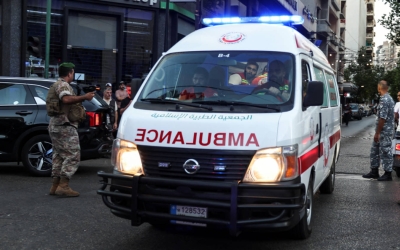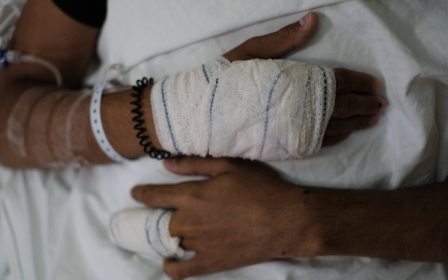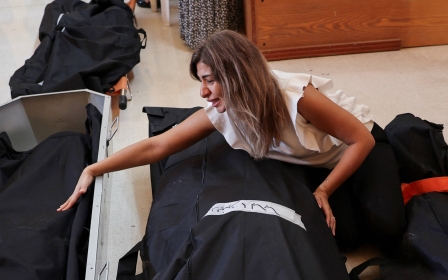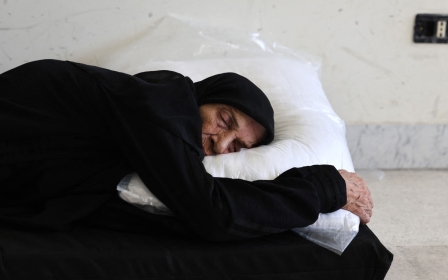Can the ICC issue arrest warrants over Israeli actions in Lebanon?
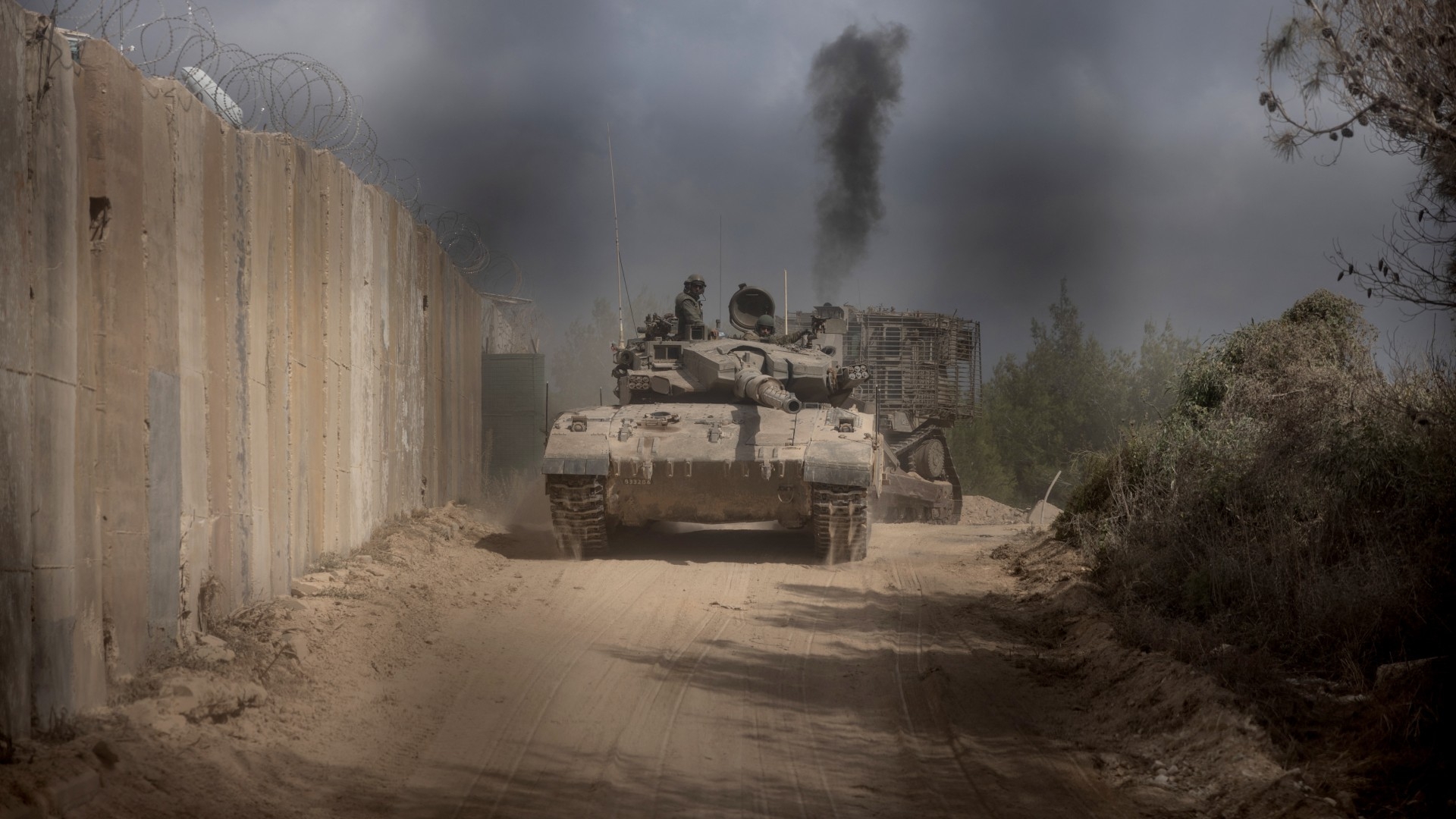
Israel’s brutal escalation in Lebanon over the past month has drawn the attention of international onlookers, including legal experts.
From the attacks on communications devices on 17 and 18 September that killed dozens and wounded thousands, to air strikes in densely populated areas and recent attacks on United Nations peacekeepers, Israeli forces have been accused of committing war crimes.
The attack on pagers and walkie talkies likely fell foul of international humanitarian law, as Israel would have been required to assess whether civilians could be harmed in every single one of the thousands of detonations, experts told Middle East Eye last month.
It may also have violated conventions that Israel is party to around the specific use of booby traps during conflicts.
Since then, Israel has bombed numerous civilian structures, including medical facilities.
New MEE newsletter: Jerusalem Dispatch
Sign up to get the latest insights and analysis on Israel-Palestine, alongside Turkey Unpacked and other MEE newsletters
One Israeli attack on 3 October, on Beirut's Bashura district, killed at least seven medical and rescue workers after an air strike hit a floor of an apartment building used by emergency workers.
Intentional attacks against healthcare and relief workers are considered war crimes under the Rome Statute of the International Criminal Court, and a breach of the Geneva Convention.
Similar accusations of war crimes and crimes against humanity have been brought in relation to Israeli actions in Gaza over the past year, too.
Since the state of Palestine is a signatory of the Rome Statute and a member of the 124-member International Criminal Court, the Hague-based body has the power to issue arrest warrants over crimes committed in the occupied West Bank, Jerusalem or Gaza.
On that basis, in May, the ICC prosecutor, Karim Khan, announced that he was seeking warrants for the arrest of Israeli and Hamas leaders. These have not yet been granted by ICC judges.
MEE takes a look at whether similar indictments could be issued in relation to actions carried out along the northern front of the war.
Lebanese U-turn on giving ICC jurisdiction
Unlike in Gaza, as things stand, the ICC is not currently able to act over alleged crimes along the Israeli-Lebanese border.
“For the ICC to exercise jurisdiction over Israeli or Lebanese nationals in relation to the current conflict in Lebanon, either Israel or Lebanon have to become parties to the Rome Statute,” Lawrence Hill-Cawthorne, professor of public international law at the University of Bristol, told MEE.
Lebanon is unlikely to sign up to the Rome Statute any time soon, for fear that its military and political leaders may face indictments over historical allegations.
“The reason for Lebanon’s failure to join may be the fear of some leaders of being held accountable and tried before this court for [previous] crimes they may have committed,” Paul Marcos, head of the Justicia Foundation in Beirut, told MEE.
'States are often loathe to accept the risk that their own leaders and military commanders would face the risk of prosecution'
- Eitan Diamond, international law expert
He added that serious crimes that come to the attention of the ICC do not expire with the passage of time.
The ICC has jurisdiction only with respect to events which occurred after 1 July 2022.
Lebanon's Justice Minister Henri Khoury told MEE that one of the political reasons that Lebanon has not joined the ICC is that, “There is hesitation to join an international body that some view as unjust or as biased against some countries.”
Alternatively, if Lebanon does not become a full ICC member, it must make a declaration under Article 12(3) of the Rome Statute, accepting ICC jurisdiction for crimes committed on its territory after a particular date.
“In this way, crimes committed in Lebanon by anyone as well as connected crimes in Israel by Lebanese could be prosecuted by the court,” said Andrew Clapham, from the Geneva Graduate Institute and author of the book War.
“This is the situation for the Russia-Ukraine war, where Ukraine has lodged such a declaration.”
Before it became an ICC member in 2015, the state of Palestine also filed such a declaration recognising the ICC’s jurisdiction.
Lebanon’s government has mulled over making such a move.
In April, the Lebanese caretaker cabinet voted to instruct its foreign ministry to file a declaration with the ICC authorising it to investigate and prosecute alleged war crimes on Lebanese territory since 7 October 2023.
But the request was never filed, and a month later, the cabinet indicated that it would file a complaint to the United Nations instead.
No official reason was given for the reversal.
“States are often loathe to accept the risk that their own leaders and military commanders (or nationals more generally) would face the risk of prosecution before the ICC,” Eitan Diamond at the Diakonia International Humanitarian Law Centre told MEE.
Hill-Cawthorne added: “I can only speculate, but there may well have been a concern that the ICC prosecutor would investigate alleged crimes by both Israeli and Lebanese nationals (including Hezbollah).”
Judge Ziad Chebib, a Lebanese constitutional expert, said that the reason given in government and human rights circles for the U-turn was fear that “the Lebanese side would transform from plaintiff to defendant in relation to military acts carried out” against Israel.
Chebib told MEE he did not find such reasoning to be valid.
“Accepting jurisdiction according to the third clause of Article 12 does not extend to any of the criminal acts not included in the written declaration that the government submits to the International Criminal Court,” he argued.
Lebanon’s reversal took place just days after the ICC prosecutor announced it would seek arrest warrants for Israeli and Hamas leaders.
The Israeli leaders named were Prime Minister Benjamin Netanyahu and Defence Minister Yoav Gallant.
The Hamas leaders named were Yahya Sinwar, Mohammed Deif and Ismail Haniyeh - the latter two having been killed since then by Israel.
Gallant and Netanyahu face war crimes and crimes against humanity charges over the starvation of civilians as a method of war; wilfully causing great suffering; wilful killing; intentional attacks on a civilian population and extermination, among several other charges.
Sinwar faces charges related to extermination, murder, the taking of hostages, and sexual assault and torture, among other charges.
Should Lebanon reconsider filing a declaration to open up its jurisdiction to the ICC, political and military leaders are mostly likely to be the focus of the court's prosecutor in this case, too.
“To the extent that leaders order or induce crimes they could be liable to prosecution, but they could also be prosecuted for command or superior responsibility for failing to prevent or punish crimes by those under their control,” said Clapham.
Diamond added that, while in theory individual commanders or lower-ranking fighters could be indicted, “in practice the prosecutor pursues cases against high-level officials”.
UN action likely to be vetoed
Lebanon’s government said it would file complaints about Israeli crimes committed on its territory to the UN instead of the ICC.
With neither country signatories to the Rome Statute, or making declarations accepting jurisdiction, “the only way the ICC could prosecute Israeli or Lebanese nationals for crimes committed in Israel or Lebanon would be if the UN Security Council refers the matter to the ICC prosecutor,” said Hill-Cawthorne.
He added that such an action was highly unlikely, given that it would be vetoed by the US and potentially other permanent members of the Security Council.
“Otherwise, Lebanon can raise its complaints before the UN General Assembly, which can pass resolutions condemning states, but these would not be legally binding (though they do carry considerable political and diplomatic weight).”
Diamond said that the UN General Assembly had occasionally set up international mechanisms, such as the International, Impartial and Independent Mechanism (IIIM), which was created in 2016 to investigate and prosecute individuals responsible for serious crimes during the war in Syria.
Additional reporting by Josephine Deeb in Beirut.
Middle East Eye delivers independent and unrivalled coverage and analysis of the Middle East, North Africa and beyond. To learn more about republishing this content and the associated fees, please fill out this form. More about MEE can be found here.


